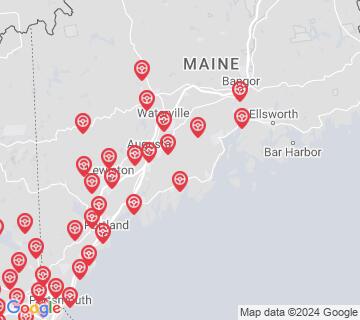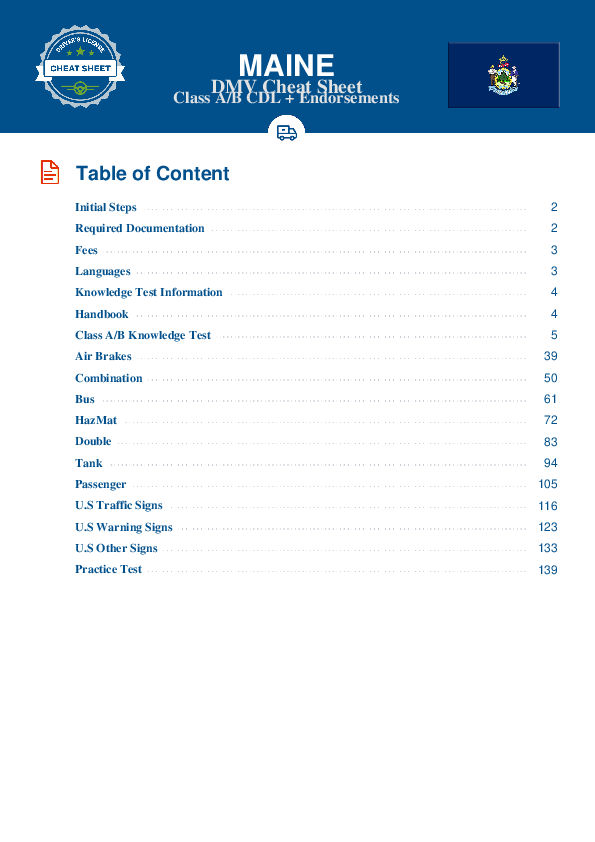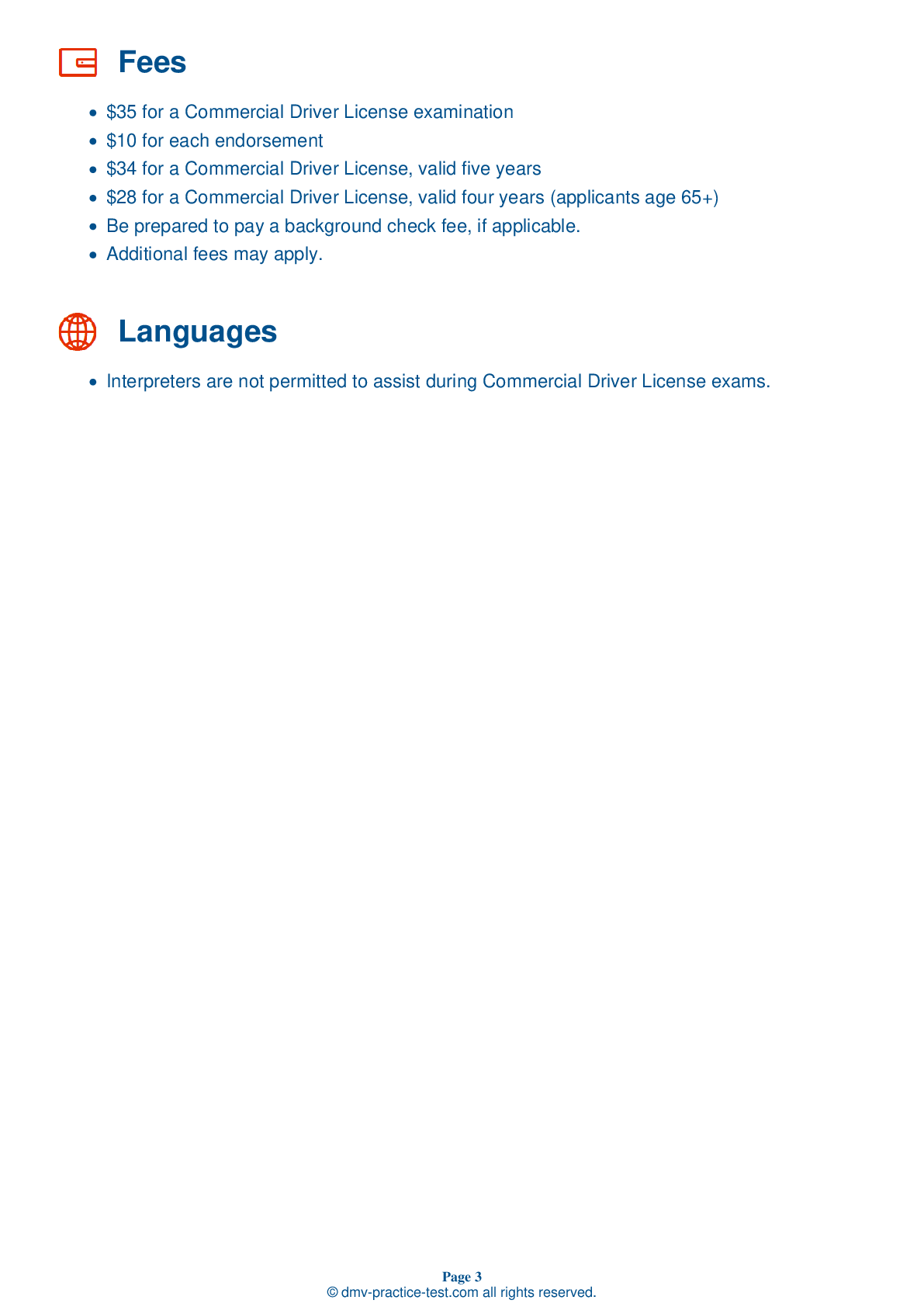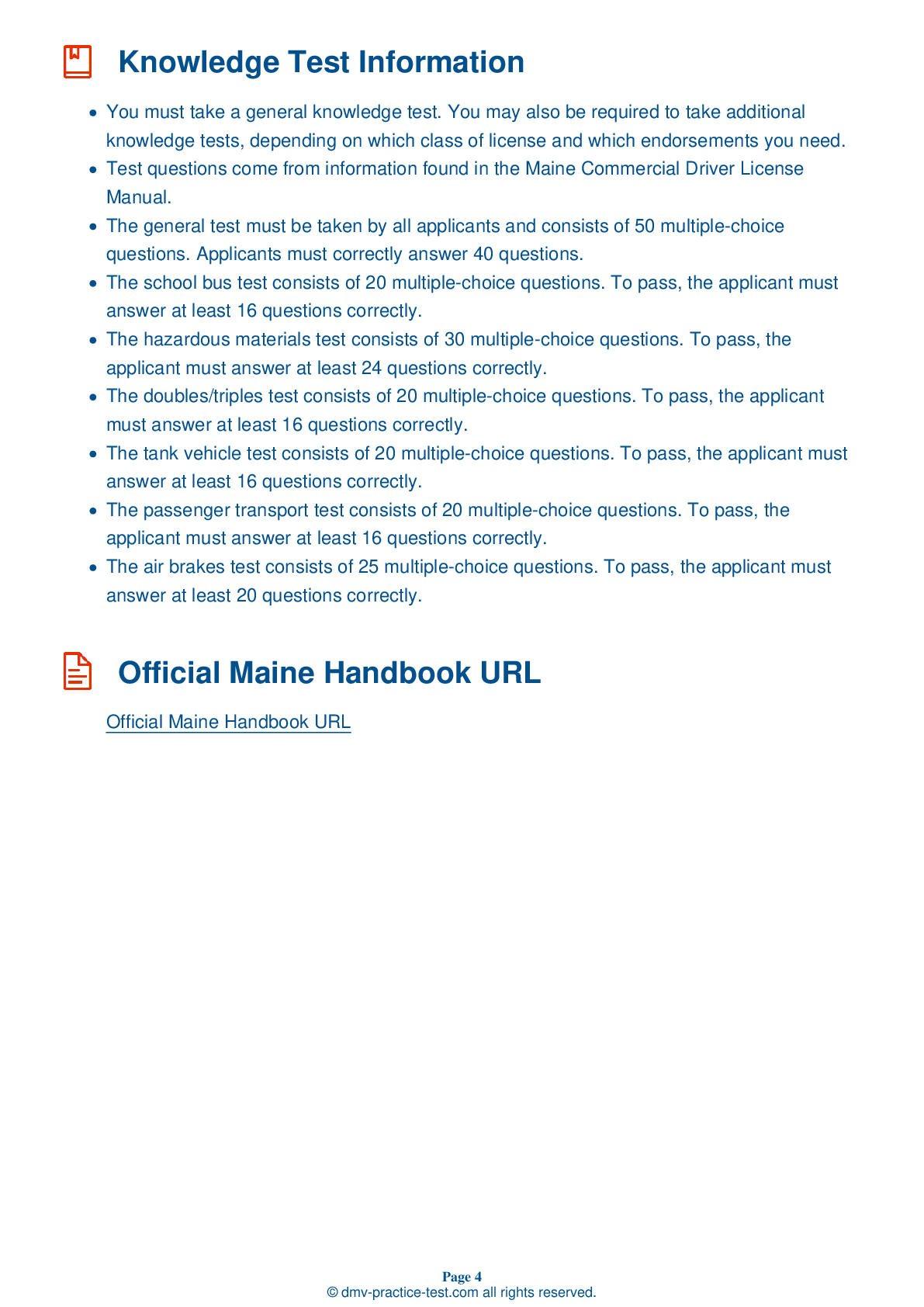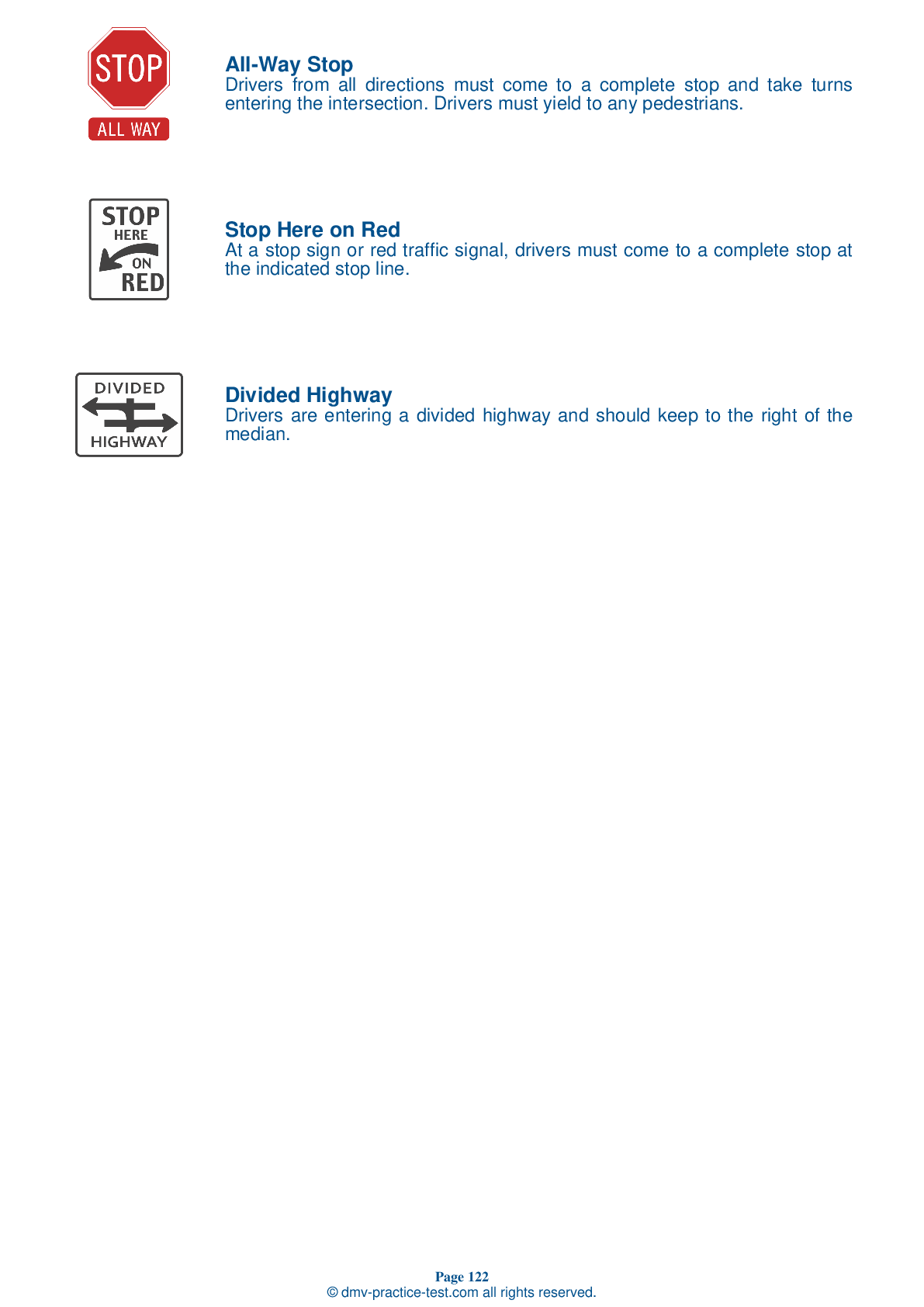Combination #2
Combination Vehicles Practice Test | Maine 2026 #2
Train for FREE online with our Maine CDL combination vehicle test. The official exam test consists of several obligatory parts, with all of them checking your knowledge of different blocks of road rules. If you need to obtain a ME combination license in 2026, practice as much as possible. Free sample tests published on our website will help you check and improve your knowledge and boost your grades. Please bear in mind that DMV requirements for issuing a combination license may vary from state to state.
20
16
20
1 . In a vehicle equipped with an automatic tractor protection valve, the valve will pop out when air pressure drops to a level between:
In vehicles equipped with an automatic tractor protection valve, the valve will pop out if air pressure drops to a level between 20 and 45 psi. When the valve pops out, the protection valve will close, stopping the flow of air.
2 . After completing a pre-trip inspection, you should ensure that the:
Before a trip, you should ensure that air reaches all air brakes on all trailers by opening up the rear emergency line and service line shut-off valves and listening for escaping air. Close both shut-off valves before beginning to drive.
3 . Combination vehicles need extra space on the road because they:
Combination vehicles need more space on the road than other commercial vehicles because they are longer and need more space to turn and stop. It is especially important to properly manage space when you are operating a combination vehicle.
4 . The trailer hand valve should be used:
The trailer hand valve (also referred to as the "trolley valve" or "Johnson bar") works the trailer brakes and should be used only when testing them. Using the trailer hand valve while driving could result in a skid.
5 . Shut-off valves:
Shut-off valves are used in air supply lines to control the passage of air from one trailer to another. The rear shut-off valve should always be closed to prevent air from leaving the braking system.
6 . Keeping cargo centered on a rig can:
A rollover is more likely if cargo is unevenly loaded in a rig. To help prevent a dangerous rollover, it is important to keep a load as centered on the rig as possible.
7 . Rollovers happen when:
Rollovers are caused by operators turning too fast. To avoid rolling over, drive slowly on entrance ramps, on exit ramps, and around corners. Avoid making quick lane changes when towing trailers.
Search the best driving school in your neighbourhood
2026 Maine | Frequently Asked Questions
In Maine, a CDL Class B license allows the holder to operate commercial vehicles weighing more than 26,000 pounds or towing a vehicle not exceeding 10,000 pounds. This includes buses, dump trucks, and straight trucks. The license also includes any vehicle included within Class C. However, to drive a combination vehicle, a Class A license is required.
A Class B CDL license in Maine allows the holder to operate single or combination vehicles where the single vehicle weighs over 26,000 pounds. This includes straight trucks, buses, segmented buses, dump trucks with small trailers, and trucks towing trailers not exceeding 10,000 pounds. However, a Class B license does not cover operation of Class A vehicles.
To acquire a Class B CDL license in Maine, you must be at least 18 years old (21 for interstate driving), possess a valid Maine driver's license, pass a vision test, and successfully complete a written knowledge test. Afterward, you'll need to pass a skills test which includes a pre-trip vehicle inspection, basic controls test, and on-road driving exam.
To qualify for a Class B CDL license in Maine, you must be at least 21 years old for interstate driving. However, if you plan to drive only within Maine (intrastate driving), you can apply for a Class B CDL license at the age of 18. Additionally, you must pass both a written knowledge test and a skills test.
While endorsements are not necessary to obtain a basic Class B CDL in Maine, they can broaden the range of vehicles you can operate. Endorsements include passenger (P), school bus (S), tank vehicle (N), and hazardous materials (H). Each endorsement requires passing additional written and/or skills tests.
The Class B CDL skills assessment in Maine includes a pre-trip vehicle inspection to ensure the vehicle is safe to drive, a basic controls test to evaluate your ability to control the vehicle, and an on-road driving test where you'll need to demonstrate proper driving techniques and safety measures.
Yes, Class B CDL license holders in Maine are restricted to operating vehicles under 26,001 pounds or towing vehicles that do not exceed 10,000 pounds. Additionally, unless they have specific endorsements, they cannot operate vehicles carrying hazardous materials, school buses, or passenger vehicles designed to carry 16 or more occupants.
In Maine, the Class B CDL written test is typically offered in English. However, accommodations for non-English speakers may be available in some cases. It's recommended to contact the Maine Bureau of Motor Vehicles directly to inquire about language options and any possible translation services.
Yes, you can request accommodations for the Class B CDL written exam in Maine if you have a disability. The Bureau of Motor Vehicles (BMV) provides reasonable testing accommodations according to the Americans with Disabilities Act (ADA). You'll need to provide documentation of your disability and specific accommodation needs to the BMV prior to scheduling your exam.
Yes, if you don't pass the Class B CDL written test in Maine, you can retake it. However, you must wait a minimum of one day before retesting. There may also be retesting fees you'll need to pay. It's recommended to study the Maine Commercial Driver Manual thoroughly before reattempting the test.
